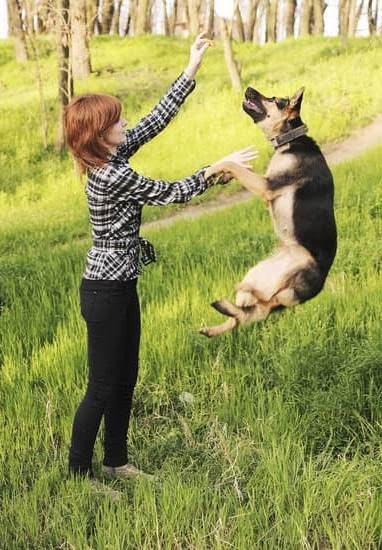Introduction
When choosing a dog trainer, it is important to consider the experience of the individual, the methods they use, their level of understanding with canine behavior and body language, their ability to provide instruction and advice, and most importantly their track record.
Experience – For starters you’ll want to look into whether or not your potential trainer has adequate experience in training dogs. If possible, try to find out how long they have been in the business and what kind of success they have had with previous clients. Ask for references from previous customers who have worked with the individual. Additionally, inquire about credentials such as certification from reputable organizations.
Methods – Consider what type of training method your potential trainer uses. Positive reinforcement is often found to be the most effective way to train a dog, however depending on your goals some other approaches may work better. Research each method so that you can make an informed decision about which works best for you and your pup.
Understanding With Canine Behavior/Body Language – It is also important to assess your potential trainer’s understanding with canine behavior, as well as their ability to recognize subtle changes in a dog’s body language which can be indicative of stress or anxiety. A proficient trainer will know how to handle different behavioral issues such as aggression or control problems in a gentle but firm manner that puts safety first.
Instruction & Advice – Pay attention to how the trainer provides instructions and advice when working with dogs; do they communicate clearly and offer helpful tips? A good instructor will take time to explain the process at hand while providing feedback on how your pup is progressing during each session . It is important that a trainer must demonstrate confidence in their teaching style by delivering clear commands with appropriate follow up corrections if necessary–this helps both you and your furry friend stay motivated throughout the training sessions!
Track Record – Finally, research for any complaints about this particular dog trainers services. Confirm that past customers feel satisfied with his/her performance by checking out reviews online or asking for personal referrals. A solid track record will ensure not only successful training sessions but also peace of mind knowing that you have chosen someone reliable enough for this critical aspect of having a pet!
Research Your Options
Researching your options is one of the most important aspects when it comes to picking a dog trainer. By learning as much as you can about potential trainers, you’ll be able to make an informed decision and find the best match for you and your pup. When researching, look into each trainer’s qualifications, experience, methods used, and results achieved. For example, certified trainers have typically gone through specialized education covering canine behavior and force-free training—which teaches dogs new manners while maintaining their trust and respect. Additionally, experienced trainers are up-to-date on the latest research and successful approaches in training that may help you achieve desired results with your dog more quickly. Consider talking to different trainers before making a decision so that you can compare them, get a feel for what style will work best for you and how comfortable both you, and your pup feel around them. Working with a qualified trainer can provide significant benefits in terms of improving overall behaviors or addressing specific behavioral issues. An experienced certified dog trainer offers an understanding of canine behavior which many people don’t possess – this expertise enables them to create personalized action plans tailored uniquely toward one’s goals or needs. Additionally, an experienced trainer may be able to give advice not only about training techniques but other areas relating to pet health such as nutrition or physical activity requirements. Furthermore, qualified trainers often bring with them helpful resources such as clickers or mats that may assist significantly with teaching particular behaviors such as waiting at doorways or offering eye contact (known as ‘watch me’). Ascertaining detailed information regarding each potential trainer can help ensure that they are truly the right fit before enrolling in any classes or programs
Refine Your Search
Before selecting a dog trainer, there are several important questions to ask. First, find out whether the trainer is certified and accredited by a recognized professional organization such as the Association of Professional Dog Trainers (APDT). It would also be helpful to know the trainer’s experience level and inquire about any specialization areas. Additionally, it is important to find out if the trainer’s philosophy aligns with yours: does the approach use rewards-based methods or punishment? You should also ask what type of training equipment they use and how long each session typically lasts. Lastly, make sure to discuss potential safety concerns like vaccinations and kennel cough that could be present in group classes. By considering these factors ahead of time, you will be better equipped to make an informed decision on which trainer can best help you achieve your goals and foster a positive learning environment for your pup.
Evaluate Credentials and Experience
When selecting a dog trainer, credentials and experience should be given serious consideration. It is important to gain an understanding of the various certifications or credentials that a trainer may possess in order to determine ability and legitimacy. Understanding the various certification processes ensures that you are choosing a credentialed professional with expertise and knowledge regarding dog training and behavior.
Some organizations offer seminars or courses intended to certify trainers. However, these can be easy for anyone to complete, so it is important to research the organization to ensure it has been approved by an accredited organization, such as the Association of Pet Dog Trainers (APDT) or the Certification Council for Professional Dog Trainers (CCPDT). In addition, APDT created an online directory of member trainers from all over the world who have completed its rigorous certification process.
It’s additionally beneficial to review a potential trainer’s years of experience as well as any specialties in which they specialize. Those looking for any alternative methods such as positive reinforcement or clicker Training should look for trainers specializing in these practices before making their final choice. Checking out references or reading testimonials can also help individuals make an educated decision prior to hiring a particular trainer.
Make the Decision
Before you make the decision on which dog trainer to pick, it is important to consider the pros and cons of different trainers. You should evaluate everything from the training style to how much of a commitment it will take from both your and your pup in order to get the results you desire. It might be helpful to look for reviews about breeders or search for references from past clients. Additionally, talk to your veterinarian or other experts in animal behavior who can give insight and recommendations into which dog trainers may be best suited for your pet’s specific needs.
When researching potential dog trainers, look for certain traits that all experienced professionals possess, such as understanding behavior, viewing things from the animal’s perspective and being able to adjust the training plan according to each individual dog’s needs. Additionally, try asking questions like what kind of equipment will be used during training (if any), where classes are offered (in-person or online), cost, experience/specialty in breed type (if applicable), success rate among similar dogs, etc. This can help you decide if they have enough knowledge and gain more insight into what kind of approach they use during training.
If possible, ask if they offer a trial class with no obligation so you can assess their methods firsthand before fully committing. Then sit down with them in person or via video chat to discuss more details surrounding their curriculum along with policies for refunds and cancellations just in case something doesn’t work out and end up not being the best fit for you and your pet after all. Finally, consider booking a session at least two weeks ahead as some trainers may already have booked space or fill up quickly depending on location or other factors prior to selecting one.
Conclusion
Once you have conducted research on multiple dog trainers, asked detailed questions and considered various credentials, it is time to make a final decision. When considering which dog trainer to pick, think about the qualities that are most important to you and how they line up with the options you’ve explored. Some questions to consider when making your decision include: Does the prospect understand your goals for your dog? Are they able to communicate effectively with both you and your pup? Do you feel comfortable with their style or methods of training? Are their rates fair and affordable for your budget? Finally, assess whether the chemistry between the canine and human is right. If you feel like you have investigated all these topics, then it is time to make a decision on which dog trainer is best suited for both you and your furry friend!

Welcome to the blog! I am a professional dog trainer and have been working with dogs for many years. In this blog, I will be discussing various topics related to dog training, including tips, tricks, and advice. I hope you find this information helpful and informative. Thanks for reading!





